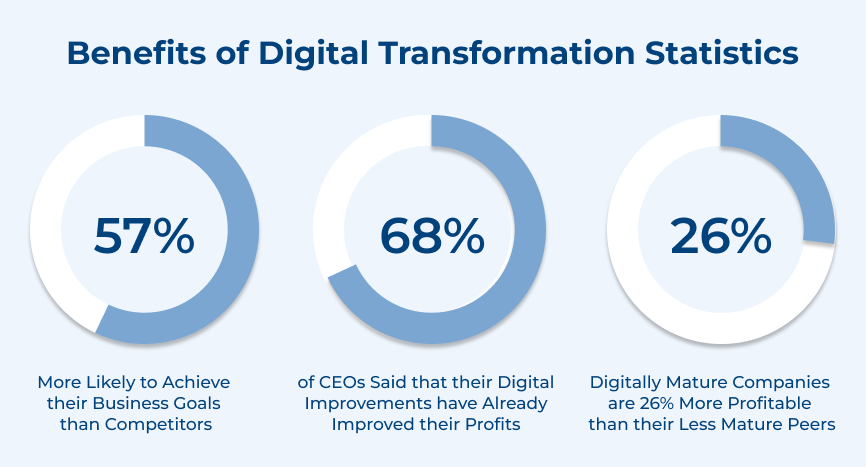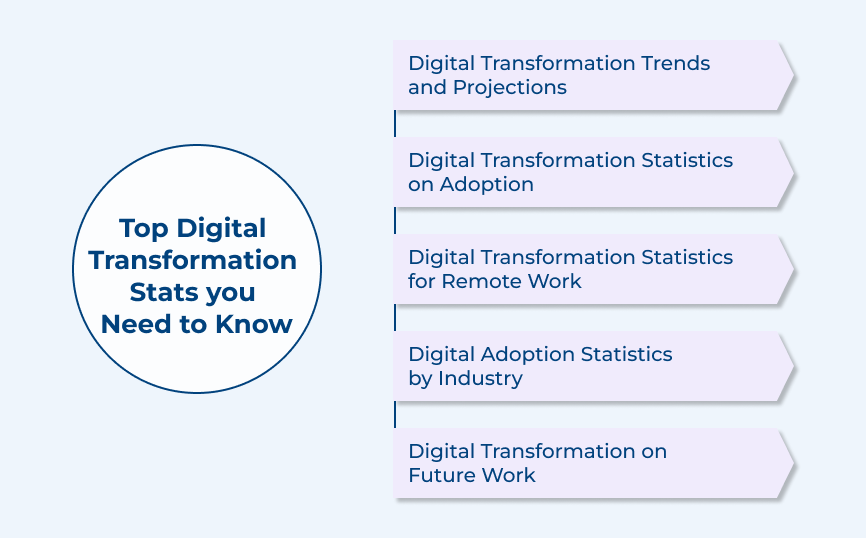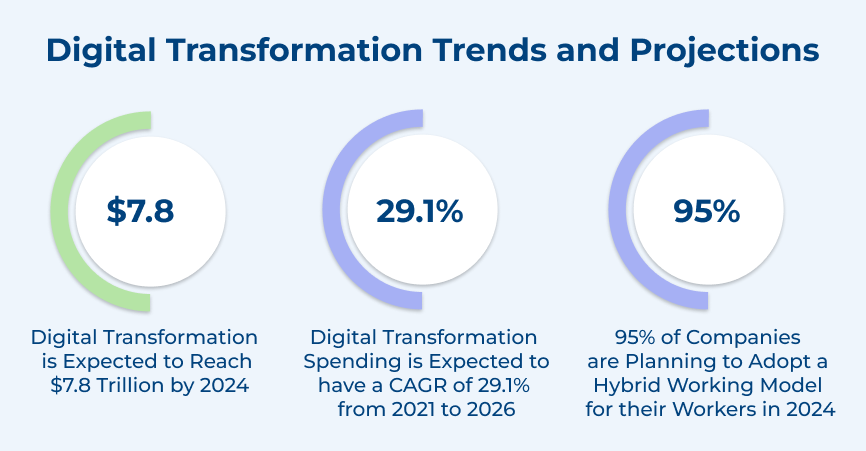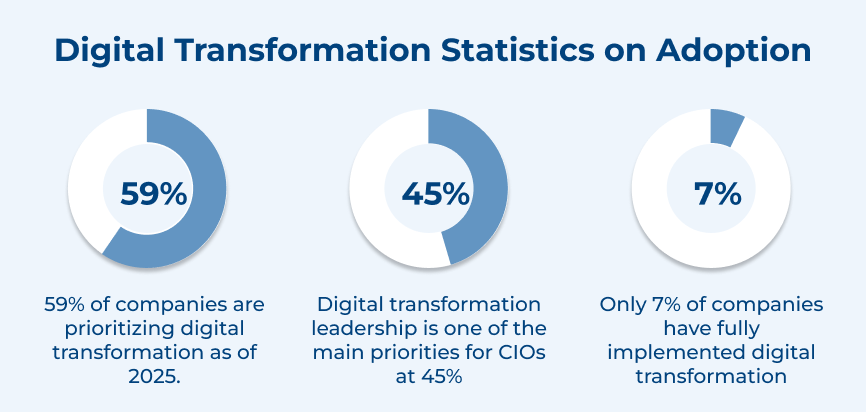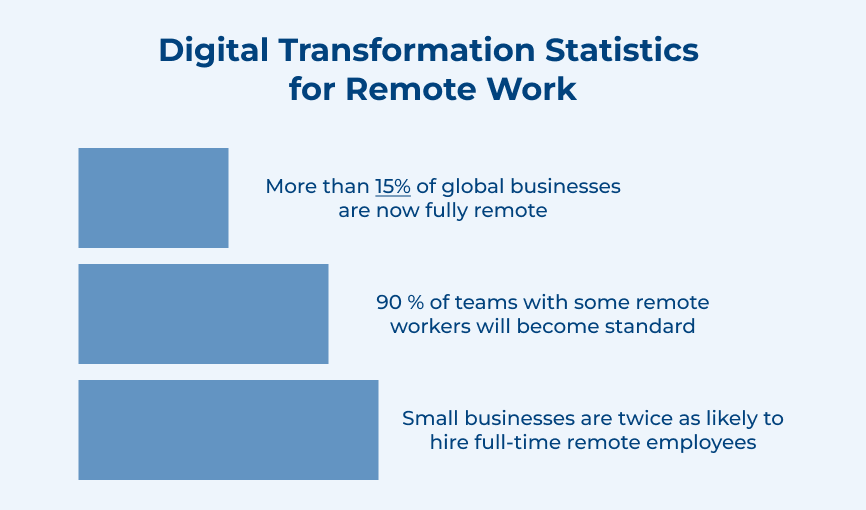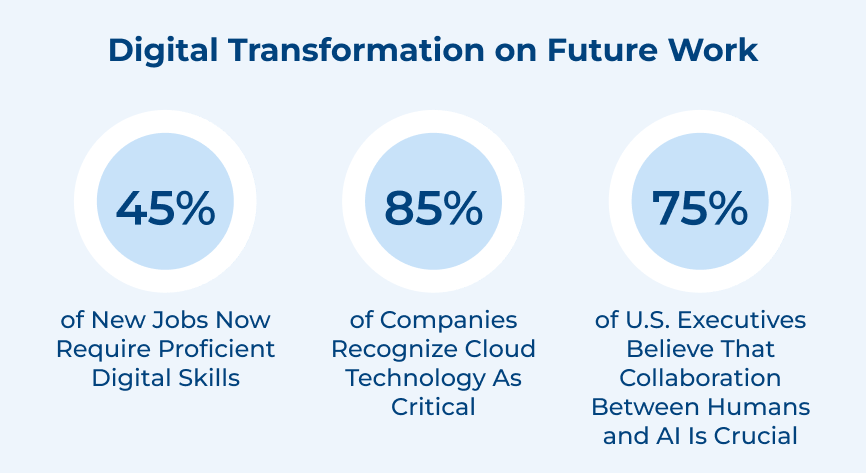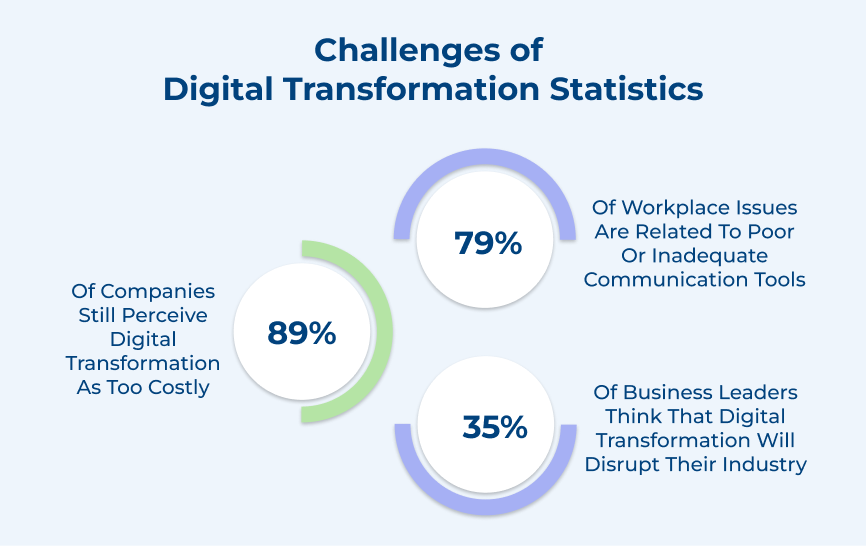1. 53% of companies without a digital transformation believe that they have less than a year before they begin losing digital transformation market share.
The digital transformation stats highlight the urgency and importance of digital transformation for businesses today. Companies that fail to embrace digital transformation risk falling behind their competitors and losing their market pressure share.
Companies need to develop a clear digital strategy and align it with their business goals. They should invest in the necessary infrastructure, technologies and talent to execute the transformation effectively. Recognizing the potential risks of not embracing transformation enables companies to take action and stay ahead in the market.
2. 89% of business leaders think that digital transformation will disrupt their industry.
The majority of business leaders are aware that digital transformation has the potential to disrupt their industry. The digital disruption can be intimidating, but it also presents opportunities for innovation and growth.
Companies should establish a culture of innovation that encourages employees to embrace new technologies and ideas. They should invest in research and development to stay ahead of industry trends. Actively seeking out partnerships or collaborations with tech-savvy companies can also help in overcoming the challenge.
3. About one-third of CIOs anticipate difficulty hiring appropriate people or training existing data science and cybersecurity staff.
The shortage of skilled professionals is a significant challenge faced by organizations undergoing digital transformation. Companies should invest in upskilling their existing staff to handle data science and privacy concerns. They can also explore partnerships with educational institutions or professional development programs to access a pool of qualified candidates.
Implementing competitive compensation packages and promoting a positive workplace culture can also attract top talent. Organizations can build a skilled workforce capable of driving digital transformation initiatives by investing in human capital development.
4. About 35% of companies still perceive digital transformation as too costly.
Cost is a common concern when it comes to digital transformation. Many companies hesitate to invest in the necessary technologies and infrastructure due to the perceived high costs involved.
Businesses should conduct a cost-benefit analysis to understand the long-term benefits of digital transformation. They should prioritize investments that align with their strategic goals and focus on incremental changes rather than large-scale overhauls. Leveraging cloud-based solutions, outsourcing non-core functions and adopting agile development methodologies can also help reduce costs.
5. 37% of workers reported that their experience with company technology exceeded their expectations.
The digital transformation stats shed light on the fact that many employees are not fully satisfied with the technological solutions provided by their organizations. Be it the outdated systems or a lack of user-friendly interfaces, companies need to align their technology with employees’ expectations.
6. 79% of workplace issues are related to poor or inadequate communication tools.
Effective communication is crucial for the success rate of any organization. The digital transformation journey can introduce new communication challenges. Integrating various platforms, ensuring smooth information flow and promoting collaboration across departments are some of the most common challenges.
Companies must prioritize investing in robust communication tools that enable efficient communication among employees and stakeholders.
Turn Data into Insights with Digital Transformation Statistics
A digital transformation project is no longer just a buzzword; it has become an essential strategy for businesses to stay competitive in the ever-evolving digital environment. As technology continues to advance at an unprecedented rate, organizations must harness the power of data to gain meaningful insights and drive decision-making.
Digital transformation graph stats clearly illustrate the immense impact data can have on businesses. Leveraging data analytics and implementing cutting-edge technologies allow companies to unlock valuable insights that can revolutionize their operations, customer experience and overall success. When businesses invest in the right digital resources, they can position themselves as industry leaders and future-proof their operations.






